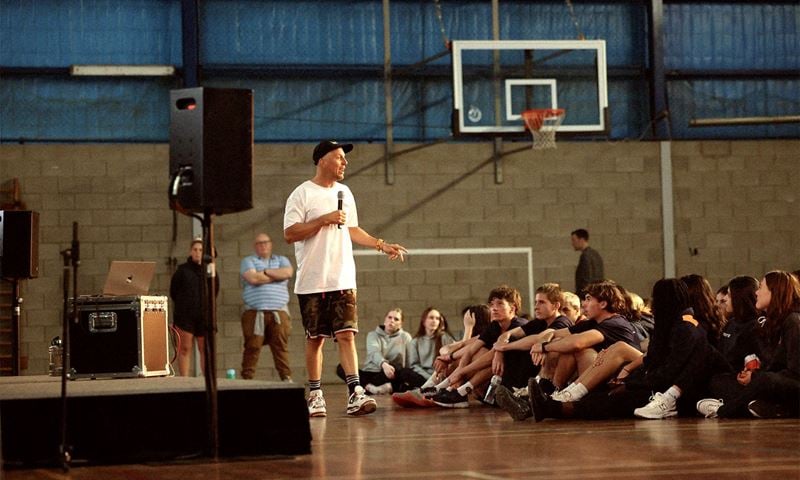Have you ever felt suffocated by an overflowing pile of documents on your desk, or a heaped pile of laundry on your laundry floor? Just admit it – we’re all guilty of letting certain clutter linger for too long and eventually combusting from the lack of physical space. But for some, it’s not uncommon for mess to trigger stress; translating physical chaos into distraction and nervousness.
How does mess impact your focus?
Clutter can affect the brain in unexpected ways. Similar to the way too many thoughts can crowd the mind, an excess of physical things can also have an adverse impact on your ability to focus, think clearly and process information.
B eing surrounded by an outrageous amount of stuff drives our senses into overdrive from overstimulation, distracting us from important things and making it hard for the brain to relax. Psychology Today explains the emotions associated with clutter, from including guilt from the feeling of disorganisation, embarrassment when our mess is seen by others, through to anxiety and frustration from not being able to locate things.
eing surrounded by an outrageous amount of stuff drives our senses into overdrive from overstimulation, distracting us from important things and making it hard for the brain to relax. Psychology Today explains the emotions associated with clutter, from including guilt from the feeling of disorganisation, embarrassment when our mess is seen by others, through to anxiety and frustration from not being able to locate things.
A study from the Journal of Neuroscience found that multiple stimuli limited the brain’s ability to process information. You might be trying to focus on a work presentation, but the mess surrounding your desk is also competing for your attention, causing frustration from an inability to properly process a task.
Why do we hold onto clutter?
 We’ve all said something along the lines of: ‘Oh, but that CD's is my favourite!’ Or, ‘I can’t possibly get rid of this geometry set in case one day I need to use that protractor…’, our desire to hold onto things is rarely arbitrary. We collect goods for various reasons; whether it be a sentimental box of birthday cards, or an expensive clothing item we swore we’d wear frequently; getting rid of stuff is hard.
We’ve all said something along the lines of: ‘Oh, but that CD's is my favourite!’ Or, ‘I can’t possibly get rid of this geometry set in case one day I need to use that protractor…’, our desire to hold onto things is rarely arbitrary. We collect goods for various reasons; whether it be a sentimental box of birthday cards, or an expensive clothing item we swore we’d wear frequently; getting rid of stuff is hard.
We inevitably attach sentimental or materialistic meaning to items we accumulate. Research from the Yale School of Medicine found that hoarders showed increased activity in the two regions of the brain associated with conflict and pain when asked to throw out their own personal items from a pile of random things. Hoarding becomes ingrained behaviour; each time a hoarder collects something, they may experience feelings of calm and relief – fuelling an addiction to being surrounded by stuff.
'Hoarding becomes ingrained behaviour; each time a hoarder collects something, they may experience feelings of calm – fuelling an addiction to being surrounded by stuff.'
Tips on decluttering
Tidying up is a no brainer – getting rid of unnecessary things is not only going to clear up physical space, but also mental space. A cleaner working/living environment means less stimuli to distract your focus and more mental energy to dedicate to one task. Tackling an overwhelming amount of mess can feel debilitating, so here are a few tips to help move you get started.
Categorise
The thought of getting rid of too much stuff can be daunting. So utilise categories to help you make decisions about whether an item should be kept or trashed. Piles may include:
- Keep – Unique items that will serve a purpose for you in the future
- Bin – Trash and recycle things that no longer have meaning or use in your life, like worn out sporting equipment or old, broken everyday items
- Donate – General items that are still in good condition that may give other people joy, like old cooking utensils, books and clothes, or electricals/furniture
- Pending – Pop all the things you can’t make a decision about, like an old jacket that you adore but never wear, into a box and detach yourself. Revisit after 6 months and make a call on whether to keep, bin or donate these items
Make it a weekend activity
Let’s not kid ourselves; starting the decluttering process isn’t a quick before-bed activity. Allocate a generous amount of time, such as one or two days during the weekend, to start (and maybe even finish) cleaning out your space. Decluttering is best done in bulk; it allows you to build momentum, work rapidly when in the groove, and prevent tidying stagnation and relapse. Make it a group activity with family or housemates and it’ll save you a bunch of time micro-clearing cupboards in the long run.
Maintain a decluttering routine
Take precautions against clutter by regularly reviewing spaces that are prone to mess, such as cupboards, wardrobes, and spare bedrooms. Put things back where you found them. Set limits on purchases to ensure you are getting the most use out of the items you already own, such as books, clothing, and food, before buying more stuff. Remove any unnecessary extra additions in order to maintain the tidy equilibrium you’ve worked so hard to achieve. And then give yourself a well-deserved pat on the back, you’ve done a great job!



